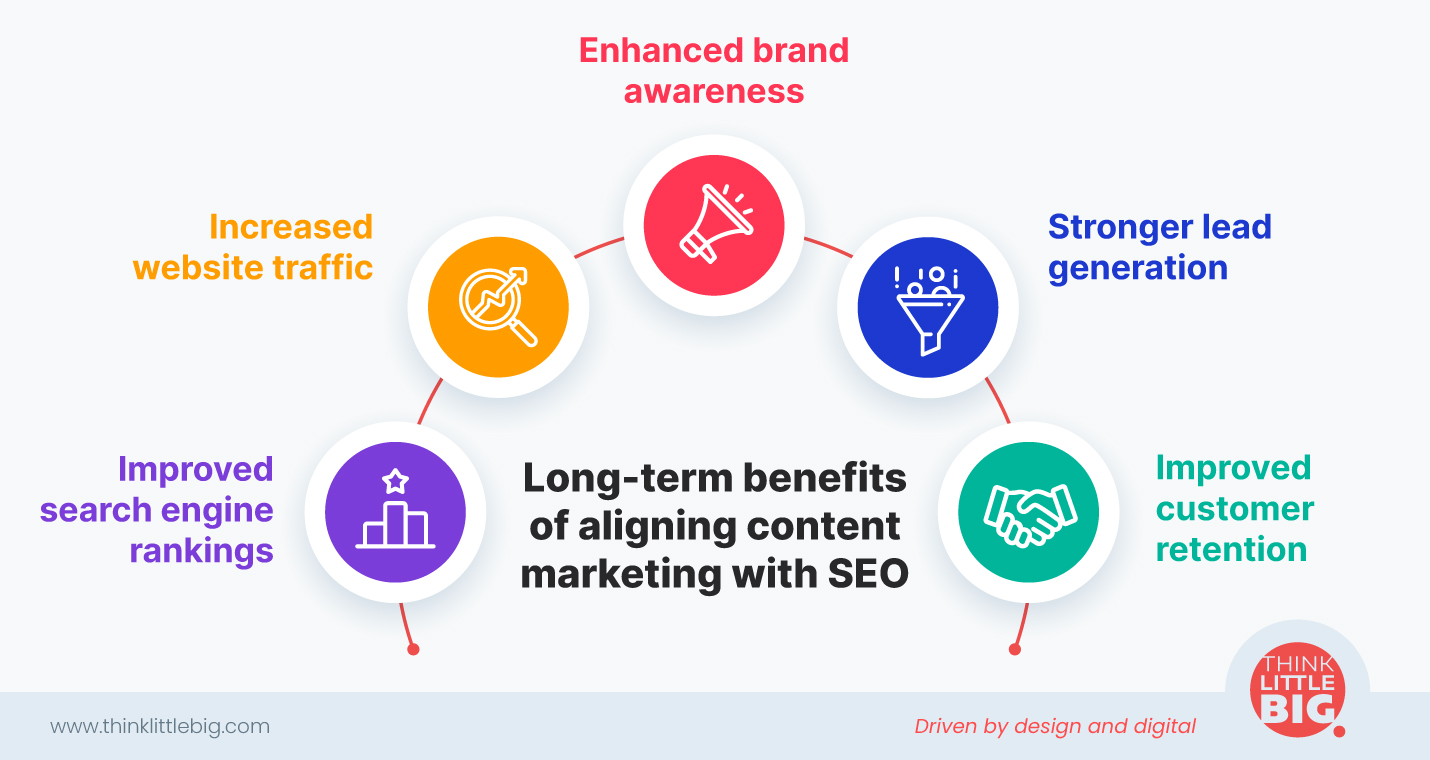
Content is the backbone of SEO. Without quality content, search engines have no context to understand or rank your website. Whether it’s blog posts, service pages, or FAQs, content provides the information search engines use to connect your website with user queries.
Good content drives organic traffic, keeps users engaged, and reduces bounce rates—all critical factors in improving search engine rankings. High-quality, keyword-optimised content satisfies user intent, building trust with both your audience and search engines.
Benefits of a Content Strategy
A well-planned content strategy offers numerous benefits that extend beyond SEO. Here are some key advantages:
- Attracting and Retaining Your Audience: A content strategy ensures you deliver consistent, valuable information that meets your audience’s needs, keeping them engaged and loyal.
- Improved Brand Visibility and Authority: Publishing relevant, high-quality content positions your brand as an industry expert, increasing trust and recognition.
- High-Quality Lead Generation: Content tailored to your audience’s pain points nurtures relationships, eventually turning visitors into leads and customers.
- Streamlined Marketing Efforts: With a clear content plan, your marketing aligns with your business goals, maximising efficiency and ROI.
Content Strategy for SEO
An effective content strategy for SEO involves planning, creating, and optimising content to rank higher in search engine results. It includes:
- Keyword Research: Identifying the terms your audience is searching for.
- Content Creation: Producing blogs, articles, videos, and other formats tailored to user intent.
- On-Page Optimisation: Ensuring proper use of headings, meta descriptions, and internal links.
- Regular Updates: Keeping content fresh and relevant to maintain rankings.
This strategy not only drives organic traffic but also ensures your content resonates with your audience.
Creating an SEO Content Plan
An SEO content plan is a roadmap for creating and optimising content to meet both user needs and search engine requirements. Here’s how to build one:
- Identify Target Keywords: Use tools like Google Keyword Planner or Ahrefs to find relevant terms.
- Outline Content Goals: Define what you want each piece of content to achieve, such as driving traffic or generating leads.
- Develop a Content Calendar: Schedule regular content creation and updates to maintain consistency.
- Monitor Performance: Use analytics tools to measure traffic, engagement, and conversions, refining your approach as needed.
A strategic SEO content plan ensures your efforts drive measurable results, keeping your website competitive and visible.
By aligning your content marketing strategy with SEO best practices, you can achieve sustained growth in traffic, leads, and brand credibility. Prioritising quality content is not just good for SEO—it’s essential for building a successful digital presence.








